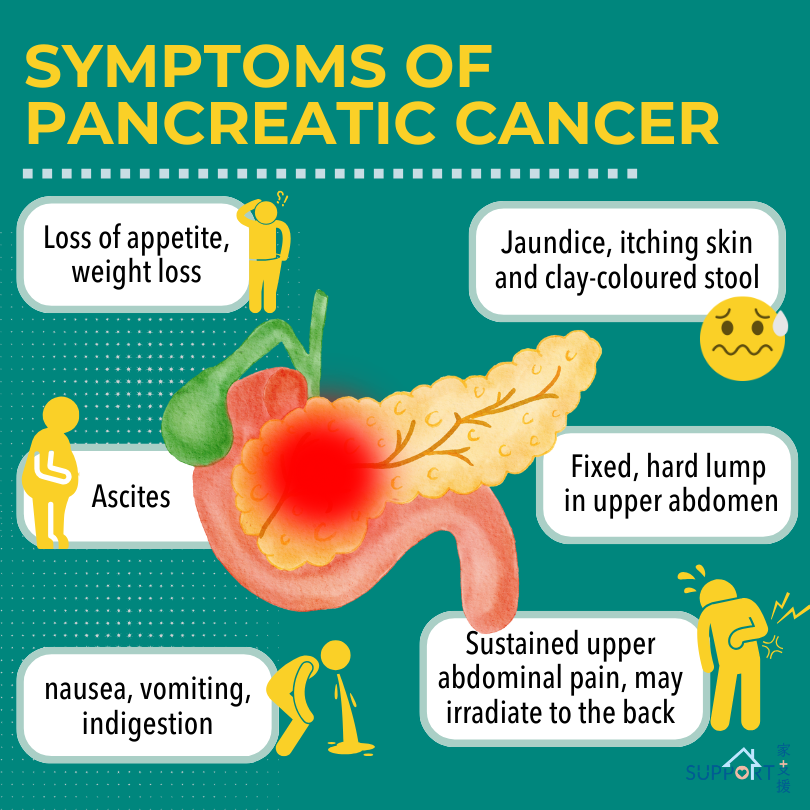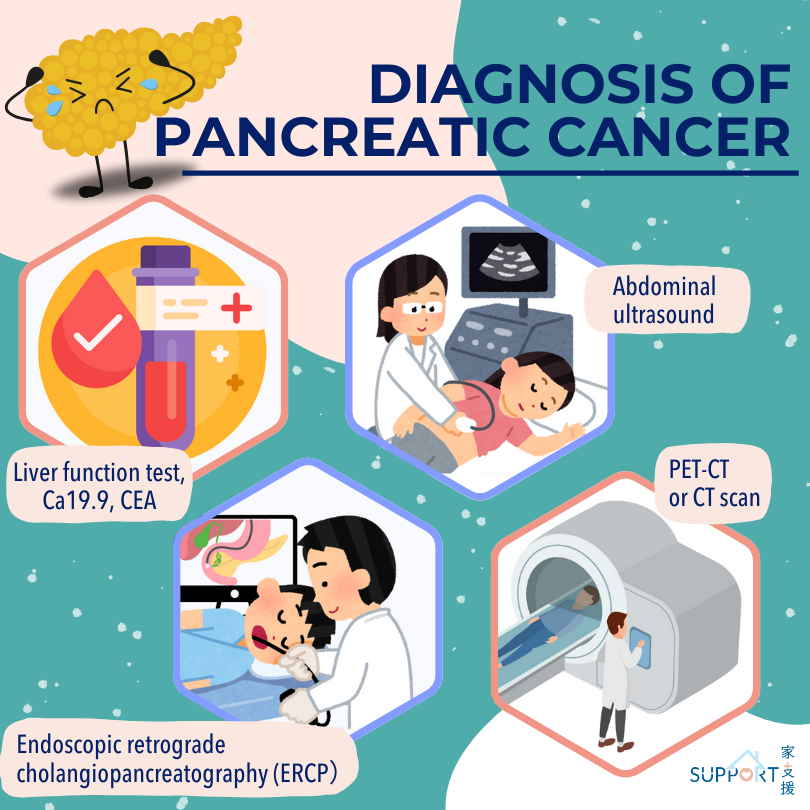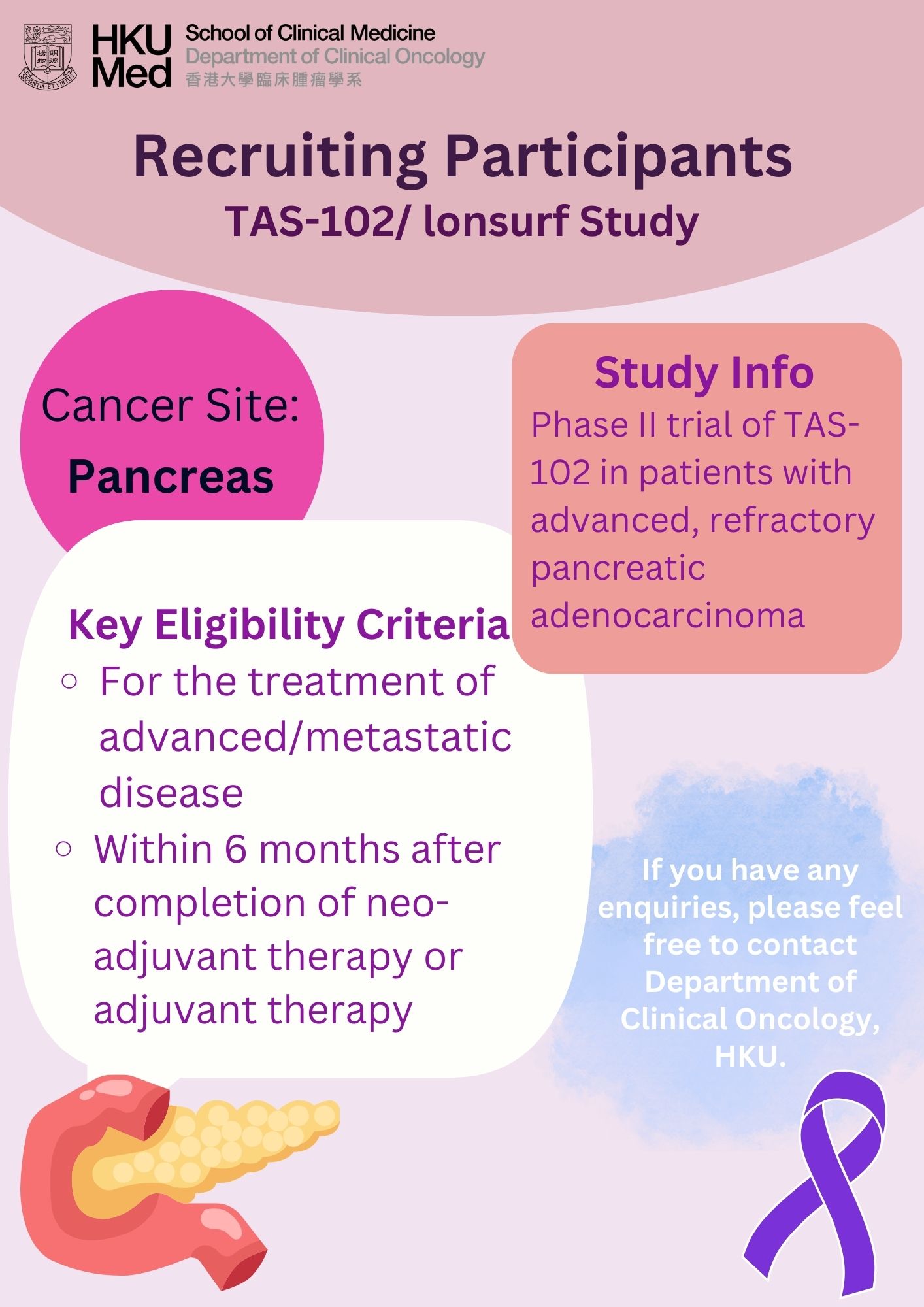|
Drug
|
Common side effects
|
|
Erlotinib (Tarceva)
Given along with the chemotherapy drug gemcitabine as first-line or subsequent-line therapy for advanced pancreatic cancer
|
Acne-like rash on the face and neck, diarrhoea, loss of appetite, and fatigue
Less common but more serious side effects: serious lung, liver, or kidney damage; holes (perforations) forming in the stomach or intestines; serious skin conditions; and bleeding or blood clotting problems.
|
|
Entrectinib (Rozyltrek)
Larotrectinib (Vitrakvi)
First-line or subsequent-line therapy in advanced pancreatic cancer patients with NTRK gene fusion
|
Dizziness, fatigue, nausea, vomiting, constipation, weight gain, and diarrhoea
Less common but more serious side effects: abnormal liver tests, heart problems, and confusion
|
|
Selpercatinib (Retsevmo)
First-line or subsequent-line therapy in advanced pancreatic cancer patients with RET gene fusion
|
Abnormal liver tests, low white blood cells and platelets, dry mouth, diarrhoea, constipation, high blood pressure, tiredness, and skin rash
|
|
Dabrafenib (Tafinlar) + Trametinib (Mekinist)
First-line or subsequent-line therapy in advanced pancreatic cancer patients with BRAF V600E mutation
|
Chills, fever, night sweats, tiredness, skin rash, nausea, vomiting, diarrhea, abdominal pain, swelling of hands or feet, joint aches, decreased appetite, muscle aches and headache
|
|
Olaparib (Lynpraza)
Maintenance therapy after first-line treatment in advanced pancreatic cancer patients whose disease is stable after at least 4 months of platinum-based chemotherapy, and harbours inherited BRCA1 or BRCA2 mutation
|
Fatigue, nausea and vomiting, headaches, diarrhoea, decreased appetite, hair loss and lower levels of certain blood cells
Less common but more serious side effects: inflammation in the lungs and the development of certain blood cancers
|
|
Rucaparib (Rubraca)
Maintenance therapy after first-line treatment in advanced pancreatic cancer patients whose disease is stable after at least 4 months of platinum-based chemotherapy, and harbours inherited or acquired BRCA1, BRCA2, or PALB2 mutation
|
Nausea, fatigue, anaemia, liver function derangement, vomiting, diarrhoea, decreased appetite and increased risk of bleeding
|
|
Adagrasib (Krazati)
Sotorasib (Lumakras)
Subsequent-line therapy in advanced pancreatic cancer with KRAS G12C mutation
|
Nausea, decreased appetite, vomiting, diarrhea, muscle aches, and changes in liver and kidney test values
Less common but more serious side effects: changes in laboratory values, including liver function tests, white blood cells, red blood cells, and electrolytes (sodium and potassium).
|
|
Erdafitinib (Balversa)
Subsequent-line therapy in advanced pancreatic cancer with FGFR mutation
|
Increased phosphate level in the blood, nail disorders, mouth sores, diarrhoea, abnormal kidney and liver function tests, decreased haemoglobin, decreased sodium, fatigue, dry mouth, dry skin, decreased appetite and hand-foot syndrome
|
|
Trastuzumab deruxtecan (Enhertu)
Subsequent-line therapy in advanced pancreatic cancer with HER2 mutation
|
Decreased haemoglobin (fatigue), decreased white blood cell (increased risk of infection), decreased platelet (increased risk of bleeding), nausea, decreased appetite, abnormal liver function tests, diarrhoea, vomiting, constipation, fever and hair loss
Less common but serious side effect: inflammation in the lungs
|
|
Zenocutuzumab-zbco (Bizengri)
Subsequent-line therapy in metastatic pancreatic adenocarcinoma with NRG1 gene fusion mutation
|
Nausea, vomiting, abdominal pain, diarrhea, constipation, muscle and joint pain, fatigue, rash, and swelling
Less common but more serious side effects: changes in blood tests, such as low red cell count, low platelet count, low sodium level, and high liver function test values
|






